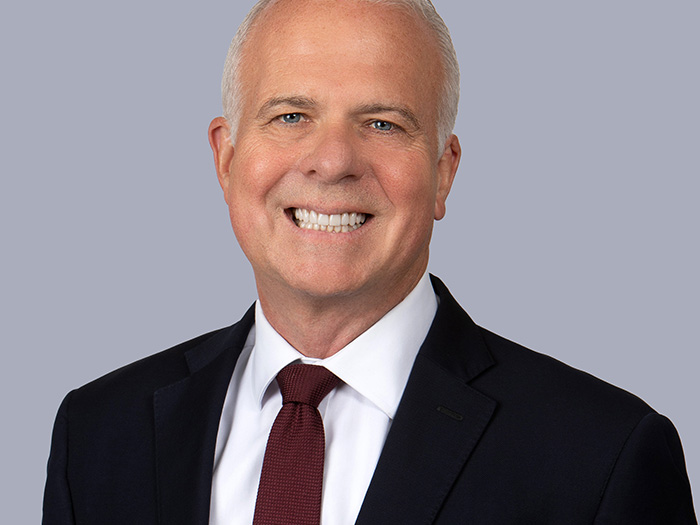View From the Bench
Workers’ Comp Docket

Pharmacist Advances Claims by Filing as Customer, Not Worker
McPadden v. Wal-Mart Stores East, L.P., No. 14-CV-475-SM (D.N.H. 04/02/15)
Ruling: The U.S. District Court, District of New Hampshire denied Wal-Mart’s motion to dismiss a worker’s tort claims based on the exclusivity provisions of New Hampshire’s workers’ compensation law. The court held that the worker’s claims arose out of her status as a customer, not an employee, of Wal-Mart.
What it means: Under New Hampshire workers’ compensation law, claims based upon negligence by an employer or coworker for personal injuries arising out of or in the course of employment are generally barred by the law’s exclusivity provisions. In this case, a Wal-Mart employee’s claims were not barred because they related to alleged injuries she experienced as a Wal-Mart customer, so workers’ compensation law did not apply.
Summary: A Wal-Mart pharmacist’s tort claims against the retailer were not barred by the exclusivity provisions of New Hampshire’s workers’ compensation law. That is because the claims were related to information that the pharmacist provided as a customer of the store, not an employee. Thus, the court denied Wal-Mart’s motion to dismiss, explaining that the pharmacist could pursue her tort claims because the injuries alleged in the case did not arise out of her employment by Wal-Mart.
The case arose when the pharmacist was terminated for allegedly misplacing a key to the pharmacy. She sued, alleging workplace discrimination, retaliation, invasion of privacy, and negligence against Wal-Mart. The crux of the pharmacist’s tort claims had to do with allegations that a technician accessed the pharmacist’s private health information and disclosed the information to other employees.
The court explained that for Wal-Mart to establish that the pharmacist’s claims were barred by the exclusivity provisions, it would have to show: 1) that the injury arose out of her employment by demonstrating that it resulted from a risk created by the employment; and 2) that the injury arose in the course of her employment by demonstrating that it occurred within the boundaries of time and space created by the terms of the employment and that it occurred in the performance of an activity related to employment.
In this case, the technician’s alleged disclosure of the pharmacist’s confidential medical information did not result from a risk created by the pharmacist’s employment. The court also held that her injuries did not arise in the course of her employment but instead out of her status as a customer. Thus, her claims were not barred by New Hampshire’s workers’ compensation law.
Inability to Pinpoint Exact Cause of Injury Doesn’t Block Claim
Pulaski County Special School District v. Laster, No. CV-14-955 (Ark. Ct. App. 04/01/15)
Ruling: The Arkansas Court of Appeals held that a specialist was entitled to temporary total disability benefits for his back injury.
What it means: In Arkansas, a claimant’s inability to pinpoint exactly how he was injured is a credibility issue that the Workers’ Compensation Commission can weigh.
Summary: A lighting specialist in the maintenance department of Pulaski County Special School District was digging ditches and putting pipe in the ground at a school. He experienced serious back pain that worsened and was diagnosed with a herniated disk. The specialist sought workers’ compensation benefits. The Arkansas Court of Appeals held that he was entitled to temporary total disability benefits.
The school district asserted that the specialist did not identify how he was injured at work. The district also argued that he did not display any physical problems at work or immediately report a work-related injury. The court rejected the district’s arguments, pointing out that the specialist told his supervisor that he hurt his back riding equipment and pulling pipes. Also, the supervisor corroborated the specialist’s testimony that the work was “strenuous.”
The court also noted that there was no evidence of a nonwork-related injury that contradicted the specialist’s claim. The court said that the specialist’s inability to pinpoint exactly how he was injured was a credibility issue the Workers’ Compensation Commission could weigh and resolve in the specialist’s favor. The court said that reasonable minds could conclude that his back injury was caused by his strenuous activity at work.
Termination Doesn’t Prevent Award of TTD
State ex rel. Vaught v. Industrial Commission of Ohio, No. 14AP-377 (Ohio Ct. App. 03/31/15)
Ruling: The Ohio Court of Appeals held that a driver was entitled to temporary total disability benefits.
What it means: In Ohio, where a worker takes action that prevents him from returning to work even if he is physically able to return, he is not entitled to TTD benefits since it is his own action rather than the work-related injury that prevents him from returning to work.
Summary: A dump truck driver sustained an injury when the truck he was driving rolled over. He received hospital treatment and was released the same day. He notified his employer that he would return to work the following week. However, the driver did not return to work and did not notify the employer that he would not be going into work that day.
The driver received additional treatment and medication for his neck and back pain. His physician indicated a return-to-work date. The driver still did not contact the employer and did not return to work. The employer terminated the driver, citing his failure to call or show up for work. The driver sought temporary total disability benefits. The workers’ compensation magistrate denied benefits, finding that the driver violated the employer’s work policy by failing to report to work and abandoned the workforce. On appeal, the Ohio Court of Appeals held that the driver was entitled to TTD benefits.
The court explained that if the employer had a written “no call/no show” policy it might have concluded that the driver voluntarily abandoned his employment by not going to work or contacting the employer. However, there was no evidence that the employer’s policy was in writing. The record contained no evidence of a written employee handbook, work rule, or prior warnings, reprimands, or other violations to suggest that the driver was or should have been aware that not contacting the employer after his injury could result in his termination. Therefore, the court concluded that he did not voluntarily abandon his employment.
The court also noted that there was medical evidence of disability at the time of the driver’s termination. The evidence did not show that the disability was caused by a non-allowed preexisting condition.
Employment Relationship Halts Postdoctoral Fellow’s Suit
Schwenger v. NYU School of Medicine, et al., No. 517372 (N.Y. App. Div. 03/05/15)
Ruling: The New York Supreme Court, Appellate Division held that an employer-employee relationship existed between NYU School of Medicine and a postdoctoral fellow who was exposed to piggyback herpes virus while working in the school’s laboratory.
What it means: In New York, where a postdoctoral fellow receives his salary from a federal grant but he is overseen at the university’s laboratory by a professor who sets the fellow’s hours, directs the fellow’s research, has the authority to discipline and fire the fellow, and the fellow uses equipment provided in part by the university, substantial evidence supports a determination that the fellow is an employee of the university.
Summary: A postdoctoral fellow at NYU’s School of Medicine was working in the school’s laboratory when he was exposed to piggyback herpes virus. His salary was funded by a federal grant that was administered through the National Institutes of Health. The fellow sued, and NYU asserted that the workers’ compensation exclusive remedy provision applied. The New York Supreme Court, Appellate Division held that an employer-employee relationship existed between NYU and the fellow. Therefore, his exclusive remedy was in workers’ compensation.
The court rejected the fellow’s contention that the Workers’ Compensation Board was preempted by federal law from exercising jurisdiction over him. Although a program announcement circulated by NIH indicated that grant recipients were not employees of NIH or the awardee institution, those statements were addressing tax liability of the grant recipients and did not justify the preemption of state workers’ compensation law.
The court went on to rule that substantial evidence supported the board’s finding of an employer-employee relationship. The fellow was overseen at the laboratory by an NYU professor who set the fellow’s hours, directed the fellow’s research, and had the authority to discipline and fire the fellow. NYU was listed as the payor on the fellow’s paychecks and provided him with vacation, sick leave, and health insurance. Also, he used equipment provided in part by NYU. Based on this evidence, the court concluded that substantial evidence supported the determination that the fellow was an employee of NYU.
Implied Contract for Hire Triggers Liability for Contractor
Ashley v. Mercer, No. 2014-SC-000273-WC (Ky. 04/02/15, unpublished)
Ruling: In an unpublished decision, the Kentucky Supreme Court held that a contractor was liable for a worker’s benefits.
What it means: In Kentucky, evidence of an implied contract for hire can establish an employment relationship between an employer and a worker.
Summary: A homeowner hired a contractor to oversee the construction of a house. A worker was hired to help build the house. At the jobsite, the contractor instructed the worker what tasks to perform and arranged his hourly wage. The homeowner stated that he did not supervise the worker, provide tools to him, and did not believe he had the authority to hire or fire him. The homeowner directly paid the worker for his work at the contractor’s request. The worker suffered a severe fall, causing multiple injuries. The worker sought workers’ compensation benefits. The contractor asserted that the worker was not its employee but the employee of the homeowner. The Kentucky Supreme Court held that the contractor was liable for the worker’s benefits.
The court found that an implied contract for hire existed between the contractor and the worker. The contractor told the worker how to perform his job, what jobs he needed to complete, and provided the majority of the tools the worker used. The contractor also negotiated with the homeowner for the worker’s hourly wage.
The court found these facts indicated that the contractor was the worker’s employer. No evidence showed that the homeowner intended to hire the worker or directed his work. Although the homeowner paid the worker, this was done at the contractor’s request.
The court rejected the contractor’s argument that the worker was an independent contractor of the homeowner. The homeowner did not hire the worker or have any control over him at the jobsite. The evidence showed that the homeowner hired the contractor, and the contractor hired the worker to assist.
The court also noted that the administrative law judge was within his discretion to decline to order vocational rehabilitation benefits for the worker because he found the worker was permanently and totally occupationally disabled.
Prior Injuries Don’t Allow Employer to Apportion Liability
Roberts Dairy v. Billick, No. 13-1009 (Iowa 04/03/15)
Ruling: The Iowa Supreme Court held that an employer was not entitled to apportion its liability for permanent partial disability benefits.
What it means: In Iowa, under the fresh start rule, an employer is liable for a work-related permanent partial loss of a new earning capacity refreshed by market forces and existing at the time of a successive injury and not for a preexisting disability arising from employment with a different employer.
Summary: A truck driver suffered four work-related injuries while working for Roberts Dairy. He also had suffered work-related injuries while working for previous employers. Roberts Dairy asserted that its liability for industrial disability benefits should be apportioned because the driver previously suffered disability from injuries sustained while working for other employers. The Iowa Supreme Court held that Roberts Dairy was not entitled to apportion its liability for benefits.
An amendment to Iowa’s workers’ compensation law states that an employer is not liable for compensating a worker’s preexisting disability that arose out of and in the course of employment with a different employer. However, the legislature did not prescribe how an offset of disability benefits should be determined.
The court found that workers have a refreshed earning capacity upon commencement of new employment, noting that earning capacity is not static. The court explained that a worker’s recovery for a successive loss of earning capacity sustained in the employment with a new employer is not a double recovery for a prior loss. Instead, it is a full recovery for the loss of the refreshed earning capacity.
The court pointed out that Roberts Dairy’s approach would not credit increases in earning capacity resulting from a worker’s restoration of physical capacity, education, training, or work experience achieved before beginning new employment with a different employer and a successive injury. The court also explained that Roberts Dairy’s interpretation assumes that earning capacity is static.
Payments by Health Insurer Reduce Employer’s Offset
Milbrandt v. Bibbs Inc., No. 27116 (S.D. 04/01/15)
Ruling: The South Dakota Supreme Court held that amounts paid by a driver’s health insurance reduced the offset the employer would receive against future medical expenses from a third-party settlement.
What it means: In South Dakota, a health insurer’s payment for a worker’s medical treatment will reduce an offset an employer would receive against future medical expenses from a third-party settlement.
Summary: A truck driver for Bibbs was injured in an automobile accident during the course of his employment. The driver settled a claim against the other driver involved in the accident. The truck driver used some of the settlement proceeds to repay workers’ compensation benefits already paid by Bibbs. Bibbs would receive an offset against future medical expenses from the remaining amount of the settlement. After the settlement, the driver’s health insurance paid for medical treatment related to the work injury. The driver sought workers’ compensation benefits. Bibbs asserted that the amounts paid by insurance would not reduce the offset against future medical expenses. In a case of first impression, the South Dakota Supreme Court held that the amounts reduced the offset.
The court explained that the workers’ compensation law did not impose a restriction on how a worker can pay for expenses incurred. The law simply ensures that an employer is not paying an amount for which a third party is legally liable. Here, because the driver’s expenses were amounts he would have been entitled to receive, the expenses reduced the offset regardless of how they were paid. The court pointed out that the law did not make a provision or exception for expenses covered by insurance.
Regarding the driver’s claim for benefits, the court explained that he had no compensable claim against Bibbs until the expenses in the remaining amount of his settlement were paid.










